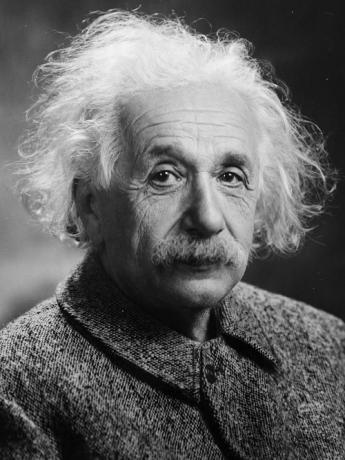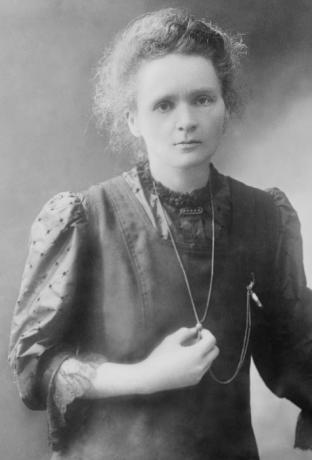O AwardNobel is a worldwide recognition, organized by the foundation of the same name and given every year by Swedish and Norwegian institutions to people or organizations that carried out, in the previous year, researches and discoveries beneficial to humanity.
THE ceremony Nobel Prize takes place every year on the day December 10th, in Stockholm, in the Sweden, and in Oslo, in the Norway. The personalities that win the award become notables in the world in front of their areas of expertise.
Check out the five categories in which the Nobel Prize is divided:
Chemistry
Physics
Medicine
Literature
Peace
History
The history of the Nobel Prize is linked to Alfred Nobel, who was born on October 21, 1833, in Stockholm, Sweden. he was considered self-taught and was fluent in several languages. The Swede acted as a chemist and invented explosives: dynamite and ballistite.
According to research, in 1888, when Alfred's brother Ludvig died, a French newspaper erroneously illustrated a note on the subject with a photo of the chemist, even calling him "dealer of death".
The episode made Alfred think about how he wanted to be remembered when he died and, in particular, how his own would be recognized. legacy. With that in mind, he conceived the Nobel Prize — a ceremony that honored people who had collaborated with the welfare of humanity.
Nobel's testament
To help the prize take shape, Nobel put in his will that, approximately, 94% of your fortune should be destined for the prize and nominated groups of people to choose the winners.
Alfred Nobel he died in December 10, 1896, after suffering a cerebral hemorrhage. When the will was opened, his family was impressed by what he read and even contested the document, which lacked information.
1st Nobel Prize
It took five years, after the death of its founder, for the Nobel Foundation to be created. The first prizes were delivered at December 10, 1901, at the Royal Conservatory of Stockholm.
Meet the winners of the first Nobel Prize in 1901:
Chemistry: Jacobus H. Van't Hoff;
Physics: Wilhelm C. Rontgen;
Medicine: Emil A. von Behring;
Literature: Rene A. F. Sully Prudhomme;
Peace: Jean H. Dunant and Frédéric Passy.
Categories
Nobel Prize winners are people who, in some way, have carried out research and contributions of great value to human beings, in fivecategories.
Physics
Physics was the first area that Alfred Nobel mentioned in his will. According to the foundation that organizes the award, this area was considered the main science at the end of XIX century. The Nobel Prize in Physics is awarded by the Royal Swedish Academy of Sciences in Stockholm.

Einstein is one of the greatest names in physics of all time and a Nobel Prize winner in 1921.
Find out who were some of the top Nobel Prize winners in Physics:
Marie Curie (1903): conducted research on the phenomena ofThe radiation;
Joseph John Thomson (1906): carried out theoretical and experimental investigations on the conduction of electricity by gases;
Albert Einstein (1921): contributed to the advancement of theoretical physics and to the discovery of the law of photoelectric effect;
James Chadwick (1935):discoveredlaughed theneutron.
Read too: Physics Discoveries That Happened By Accident
Chemistry
It was the area in which Nobel worked. This category was the second to be mentioned in his will. The Nobel Prize in Chemistry is awarded by the Royal Swedish Academy of Sciences in Stockholm.
Check out some Chemistry award winners:
Ernest Rutherford (1908): investigated about the disintegration of the elements and the radioactive substance chemistry;
Dorothy Crowfoot Hodgkin (1964): discovered techniques of X ray of the structures of important substances biochemical;
Linus Carl Pauling (1954): researched the nature of chemical bond and its application in elucidating the structure of complex substances;
Jean-Pierre Sauvage (2016): investigated the design and synthesis of molecular machines.
Read too: Effects of Acid Rain on Historic Monuments
Medicine
Medicine or Fphysiology was the third area Nobel mentioned in his will. The Nobel Prize in Physiology or Medicine is awarded by the Nobel Assembly at the Karolinska Institutet in Stockholm.
See some winners:
Robert Koch (1905): made investigations and discoveries regarding the tuberculosis;
Alexander Fleming (1945): discovered the penicillin and its curative effect on various infectious diseases;
Barbara McClintock (1983): discovered mobile genetic elements;
Elizabeth H. Blackburn (2009): noticed how the chromosomes they are protected by telomeres and the enzyme telomerase.
Also access: Which organs can be donated while alive?
Literature
Studies show that Alfred Nobel had a lot interest in the area in culture, especially in the Literature. He even owned a large library, with books in several languages.
Literature was the fourth prize cited in Nobel's will. Laureates in this category are chosen by the Swedish Academy in Stockholm.
Meet some laureates:
Ernest Miller Hemingway (1954): showed mastery of the art of narrative and influenced contemporary style;
Gabriel Garcia Marquez (1982): he wrote novels and short stories, in which the fantastic and the real are combined;
Toni Morrison (1993): he produced novels characterized by visionary force and poetic importance;
Bob Dylan (2016): created new poetic expressions within the great tradition of American music.
Also know: The five most important chroniclers of Brazilian Literature
Peace
Alfred Nobel showed great interest in social questions and got involved in peace movement. This was the fifth and last area mentioned in his will.
The Nobel Peace Prize is awarded by a committee elected by the Norwegian Parliament (Stortinget).
Find out who were some winners:
Martin Luther King Jr. (1964): fought the racial inequality;
Mhood Teresa of Calcutta (1979): helped to care for the poor and sick;
Nelson Mandela (1993): worked for the peaceful end of the regime of THEpartheid and laid the foundations for a new democratic South Africa;
Malala Yousafzai (2014): she fought against the repression of children and youth and for the right of all children to education.

Malala is the youngest Nobel Peace Prize winner. [1]
Economy Award
It is important to emphasize that, although the Economy award is presented at the same ceremony as the first four categories mentioned above, it not connected to Alfred Nobel.
Recognition in the field of economics, called the Sveriges Riksbank Prize for Economic Sciences in Memory of Alfred Nobel, was created in 1968, fur Central Bank of Sweden.
Appointments
According to research, the Nobel Prize committee usually sends, in September of the year before the awards are given, appointment forms about three thousand people what work in the five areas into which the categories are divided.
In the case of the Nobel Peace Prize, forms are also sent to governments, former winners of the award and for the old or current Norwegian committee members.
The Nobel Prize committee set the day December 31th like deadline for return of the nomination forms. After receiving the answers, pre-select about 300 people/organizations and sends the works to the institutions that deliver the awards.
It is important to highlight that the indicated are not informed that they have been selected.. As per the history of the Nobel Prize, nominations are held in secrecy for 50 years.
Ceremony
According to the rules of the Nobel Prize ceremony, at most three people and two different jobs can be selected in each category.
Nobel Prize winners win:
A diploma;
An 18-carat gold medal;
An amount, determined by the Nobel Foundation, which is around 1 million dollars.
According to the Nobel Foundation, laureates need to carry out a public lecture within a period of six months afteraccept O recognition. However, most winners do the exhibition during the Nobel Week, in Stockholm. On the occasion, a party is held in full dress.
Curiosities
- Although the Nobel Prize has five categories, it is not necessarily awarded in all areas every year. Overall, the most frequently awarded prize is Peace.
- The posthumous award is only given if the person is announced as the winner but dies before the December 10 ceremony.
- Marie Curie was the first woman to win the Nobel Prize in 1903. In 1911, she became the first person to win two copies of the prize in different areas (Physics and Chemistry) due to her discovery and research on two chemical elements: o radio and polonium.

Marie Curie has twice won the Nobel Prize, one in Physics and the other in Chemistry.
- Before Malala, 25-year-old Australian physicist Lawrence Bragg had been the youngest person to win a Nobel Prize in 1915.
- Mahatma Gandhi he nearly won the prize when he was nominated three days before his assassination in 1948.
- James Watson, Francis Crick and Maurice Wilkins were the three scientists who won the Physiology or Medicine prize in 1962 for the discovery of the double strand of the DNA.
- Martin Luther King Jr. was also one of the youngest to be recognized by the Nobel Foundation. He won the Nobel Peace Prize in 1964 at age 35.
- Jean-Paul Sartre, French philosopher, writer and literary critic, was the first person to refuse the Nobel Prize for Literature, in 1964. Anyway, the writer is recognized for having taken the award.
- Alexander Fleming shared the 1945 Physiology or Medicine Prize with Ernst Chain and Sir Howard Florey for the discovery of penicillin and its curative effect on infectious diseases.
- Aleksandr Solzhenitsyn, a Russian writer, won the Nobel Prize for Literature in 1970 for writing books that revealed the brutality of labor camps in the Soviet Union.
- O International Committee of the Red Cross he was the biggest Nobel Prize winner. He was awarded in 1917, in 1944 and in 1963, when he turned 100 years old.
Controversies
- Eyvind Johnson and Harry Martinson received the Nobel Prize for Literature in 1974. There were criticisms because, despite being members of the Swedish Academy, they were not well known outside the country.
- Yasser Arafat, Shimon Peres and Yitzhak Rabin won the Nobel Peace Prize in 1994 for contributing to peace in Israel. A year later, the last of them was murdered by an Israeli. Later, accusations against Arafat also surfaced.
-barack obama, former president of the United States, received the Nobel Peace Prize in 2009 for his efforts to maintain diplomacy among peoples. However, despite having led the nuclear agreement with Iran and the resumption of relations with Cuba, many did not agree with the award for judging the content of his policy more bellicose than pacifist.

There was controversy surrounding the Nobel Peace Prize for Obama in 2009.[2]
- In 2014, Pakistani activist Malala Yousafzai, aged 17, was the youngest winner of the Nobel Peace Prize. Some criticized the title for judging it too young and inexperienced.
- The award given to American Bob Dylan, one of the most representative folk musicians rock, in 2016, in the Literature category, also generated controversy because he is not considered a writer.
Brazil in the Nobel Prize
Although Brazil has already been nominated for the Nobel Prize, was never graced. Check out, below, some personalities that were close to be laureates:
Carlos Chagas: nominated for the Medicine Prize, in 1913 and 1921;
Adolfo Lutz: nominated in the Medicine category in 1938;
Manoel de Abreu: also indicated in Medicine, in 1946;
Cesar Lattes: nominated for the prize for Physics, in 1950;
Jorge Amado: nominated in the Literature category in 1967;
Carlos Drummond de Andrade: also nominated for the literary prize in 1967
Sérgio Henrique Ferreira: he competed for the Nobel Prize in Medicine, in 1982;
Dom Paulo Evaristo Arns: he ran, in 1990, for the Nobel Peace Prize.
Know more: Arthur Ávila, Brazilian Fields Medal winner
*Image credits:
[1] Credit: jstone / Shutterstock
[2] Credit: Credit: Everett Collection / Shutterstock
By Silvia Tancredi
Journalist
Source: Brazil School - https://brasilescola.uol.com.br/curiosidades/premio-nobel.htm



